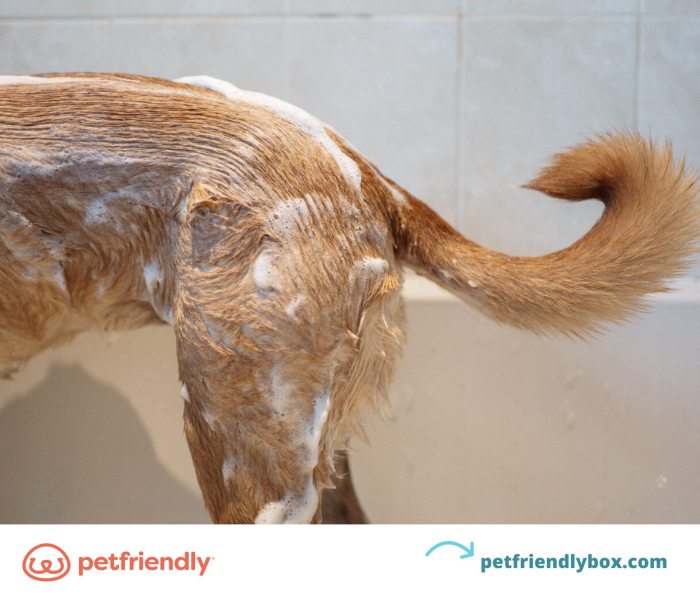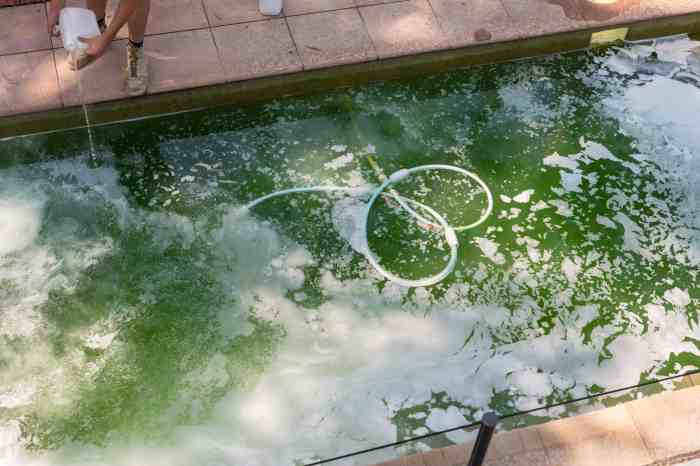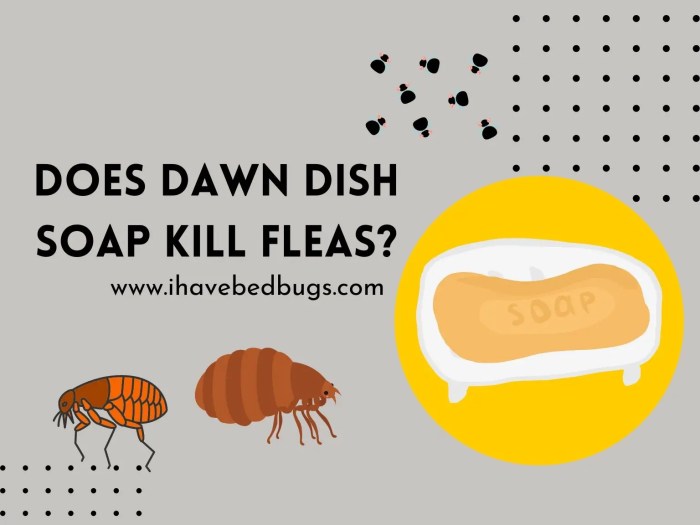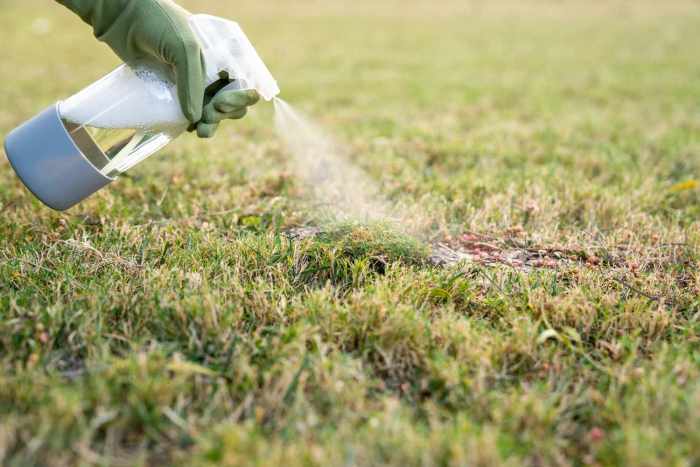Will dish soap kill algae in pool – Exploring the efficacy of dish soap as an algae control method in swimming pools, this article delves into its mechanisms, effectiveness, and responsible application. Dish soap, a common household item, has gained attention for its potential to combat algae growth, prompting an investigation into its capabilities and limitations.
The subsequent paragraphs provide a comprehensive analysis of dish soap’s role in algae control, examining its effectiveness against various algae species, identifying suitable dish soap types, outlining application techniques, and addressing safety considerations and environmental impact.
Effectiveness of Dish Soap against Algae

Dish soap, a common household cleaning agent, has been found to have algaecidal properties, making it a potential alternative for algae control in pools.
The active ingredient in dish soap, surfactants, are amphiphilic molecules that disrupt the lipid bilayer of algae cells, causing leakage of cell contents and ultimately cell death.
Factors Influencing Effectiveness
- Concentration:Higher concentrations of dish soap result in increased algae mortality.
- Exposure Time:Extended exposure to dish soap allows for greater penetration and damage to algae cells.
- Algae Species:Different algae species have varying susceptibility to dish soap, with green algae being more susceptible than blue-green algae.
Types of Dish Soap for Algae Control: Will Dish Soap Kill Algae In Pool

Not all dish soaps are equally effective against algae. The most suitable types contain high concentrations of surfactants and low levels of phosphates and dyes.
Recommended Ingredients, Will dish soap kill algae in pool
- Alkylbenzene sulfonate (LAS):A strong surfactant effective against algae.
- Linear alkyl sulfonate (LAS):A biodegradable surfactant with good algae-killing properties.
- Sodium lauryl sulfate (SLS):A mild surfactant that can be effective against certain algae species.
Methods of Applying Dish Soap to Pool

To effectively control algae with dish soap, it is important to apply it properly.
Dosage and Circulation
The recommended dosage of dish soap for pool algae treatment is 1-2 ounces per 10,000 gallons of water. Ensure proper circulation of the pool water during treatment to distribute the dish soap evenly.
Safety Considerations and Environmental Impact

While dish soap is generally safe for use in pools, certain precautions should be taken.
Potential Risks
- Skin and Eye Irritation:Contact with concentrated dish soap can cause skin and eye irritation.
- Foaming:Dish soap can produce excessive foaming, which can interfere with pool filtration and circulation.
Environmental Impact
Dish soap can have a negative impact on aquatic ecosystems if not disposed of properly. Avoid excessive use and follow guidelines for proper disposal.
Common Queries
Is dish soap harmful to pool surfaces?
Dish soap can be corrosive to certain pool surfaces, such as vinyl liners. It is essential to use it sparingly and rinse the pool thoroughly after treatment.
Can dish soap kill all types of algae?
No, dish soap is not effective against all algae species. It is most effective against green algae, but may have limited efficacy against other types like black algae or yellow algae.
How long does it take for dish soap to kill algae?
The time it takes for dish soap to kill algae varies depending on factors such as algae concentration, dish soap dosage, and water temperature. Typically, it can take several hours to a few days to see noticeable results.